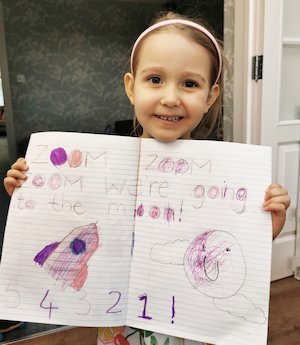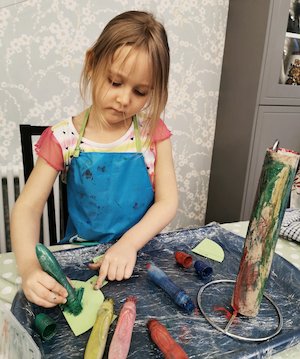Planning for an Emergent Curriculum
- 5 Stars
Add to My Folder
Offering children a play-based curriculum is now firmly established as the way forward for encouraging learning and development within an early years environment, and planning an emergent curriculum is really just the next step in the process.

As adults, no-one would expect us to spend our free time on projects or hobbies someone else chose for us – so why should it be different for children? I’m sure most of us can remember having to spend a great deal of our school days working on topics that just didn’t inspire us – I know I did. Looking back at those times now, I feel I would have gained a lot more from concentrating on projects that emerged from my own interests – which is where the emergent curriculum ethos comes in.
The idea is that planning for learning, development and play will develop from response to the interests, ideas and thoughts of children. Teachers will observe children at play, picking up on specific interests of individual children and then use these as starting points for planning activities, with the adult role being that of a facilitator of learning, allowing a child to discover and investigate using their own unique thought processes. The adult should place a greater emphasis on the journey of discovery and learning than the end result – encouraging a life-long love of learning. Observation and documentation are key when planning for the individual child, and although activities will be planned around their interests, this must be kept loose, so children can go off in other directions as they discover new things. This can be easily achieved though, as many activities can be suitably adapted for all children. For instance, junk modelling is perfect here. Children are free to have a go at creating wherever their imaginations/interests take them, and this is also a perfect activity for observing children in order to pick up on themes that grab their interest. If you ask a child what they want to make and they say, ‘A robot because they’re my favourite thing,’ you have a great opportunity to talk about robots. You could follow this up by introducing robot-themed picture books, sharing the stories at circle time, or having children pretend to move like robots during outside play or PE.

Scholastic Resource Bank: Early Years - join today!
- Over 2,000 EYFS resources, activity ideas and games
- Perfect for anyone working or playing with children from 0 to 5 years old
- Unlimited access from just £1.25 per month
Already a member? Sign in below.
Published 22 March 2021
Reviews
Rated 5/5 from 1 rating
You need to be signed in to place a review.
Jeannette
on 6 April 2021
Ms
Love this idea. As each child have their unique learning style.